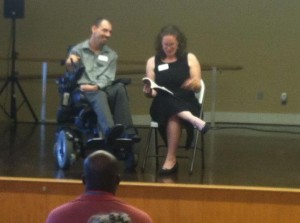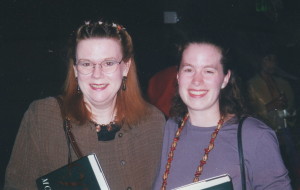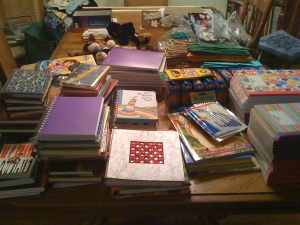My mother was diagnosed with Multiple Sclerosis in her early 20’s, though she probably had symptoms much younger than that. At the time, MS was an unknown medical mystery, one in which she lived with throughout her lifetime. During her later years, she needed state and government assistance, but she also had some independence. It was a difficult balance to maintain.
Now, when someone is diagnosed with a chronic illness, we make donations to research in their name, participate in annual walks, and hold fundraisers and support gatherings. While we flock to those organizations that are the largest and well known in the field, many of the groundbreaking and grassroots organizations will need more assistance than ever over the next few years.
These organizations, many who are already stretched thin will be directly impacted from the upcoming changes in the political structure.
No matter what side of the political aisle you sit, and we have many friends and colleagues that are on both sides, politics plays into the support for those with disability and chronic illnesses. It doesn’t seem to bother anyone, until it gets personal.
This summer, not one but three of Barton’s contracts were pulled due to restructuring or lack of funding, as our state political climate shifted gears.
It caused a dramatic shift in our lives.

Speaking to a grassroots disability organizations on our book tour, and engaging others in active participation.
One month we were speaking at a conference about creating healthy relationships for people with disabilities across the country and the next we were planning on moving out of our house because we couldn’t afford it. We stripped everything, even those things that were necessary, from our budget.
While we were able to step into new roles that have lead to greater sustainability before we slid down the deep dark vortex, many, many people are and will fall through the cracks.
For this disability community, it will mean that those who have made great strides for independence will find their work slashed, with steps backwards to an archaic paradigm, putting people with disabilities into institutions instead of community support living. It will make work harder for those who have dedicated their lives for the service of others.
It will mean that it will be harder for my husband to get the wheelchair he needs in 5 years or that we will have to delay necessary repairs. And while he is not on SSD, it will mean countless families will go without the support they need to care for their loved ones.
For them, it may mean not having anyone to care for their spouse, child, sister/brother, mother/father, friend. They will struggle to find housing that supports inclusion and community involvement, adequate transportation to live an independent life when they are able, and individualized care that balances assistance and autonomy.
Institutional care is not the way we need to care for people impacted by disability or chronic illness. While it does keep them “safe,” it also strips them of any independence, autonomy, worth/value, and in many cases respect and human dignity.
For organizations, it will mean scrutinizing how every single penny is spent versus providing programs, education, and services focused on the people they are serving. They will cut what is deemed unnecessary, shrinking the impact of their services.
When my mother passed away, a spent a lot of time donating her collections to those in need- her hat collection passed on to a local wig shop for women impacted by cancer, many of her clothes, made for those who do not have hand dexterity, when to a thrift store specifically for older adults, and her decoupage canes were passed on the local MS support groups.
When I visited Tuscaloosa for the 10-year honorary art exhibit at the Bama Theatre held in her name, we included tornado relief donations and serve as a part of my gratitude back to the community. It became more about the donation; it was also about community involvement and service.
I spent a lot of time going through and deciding who to give things to, looking not only at national organizations, but at places that are in the fray, doing work everyday to serve others.
The next time you contribute to a service organization, take a look around you, find an organization that does great work in the local community that is in need of support and sustainability.
Related articles:
News and Observer: Cultivate an Ability to Belie Disability
Self Care for Caregivers and People with Disabilities
Paying it Forward and Having Fun
We know you want to create meaningful change in the world with innovative solutions!
Our leadership training, individual consulting and coaching, and content development, services unveil the tools you need to empower every professional or personal relationship with impeccable clarity, understanding, and action.


